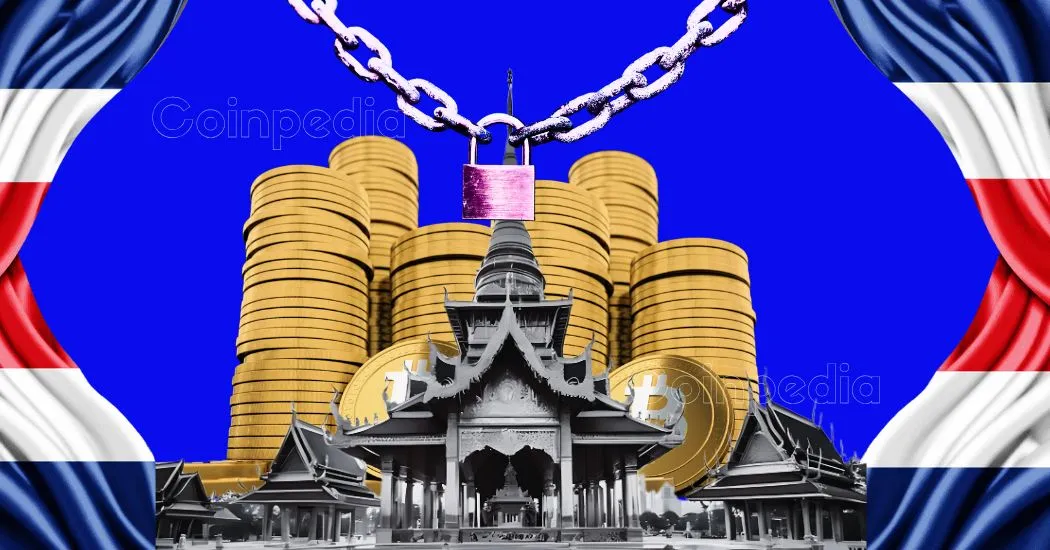Thailand’s Regulatory Crackdown on Unlicensed Crypto Exchanges: A Deep Dive
In a significant move shaping the future of cryptocurrency trading in Southeast Asia, Thailand’s Securities and Exchange Commission (SEC) has announced a sweeping ban targeting several major foreign crypto exchanges. Set to take effect on June 28, these measures will block access to platforms such as Bybit, CoinEx, OKX, 1000X, and XT.com, disrupting the digital asset trading landscape for Thai investors. This analysis unravels the motivations behind this crackdown, the implications for traders and exchanges, and the broader regulatory context.
—
Understanding the Core Reasons for the Ban
The Thailand SEC’s decision to block access to these five prominent exchanges pivots on two primary concerns: the lack of proper licensing and the prevention of financial crimes, particularly money laundering.
The banned exchanges have reportedly been offering digital asset services to Thai users without obtaining the required local regulatory approvals. Thai law mandates that any platform servicing local investors must possess a license issued by the SEC. This ensures oversight, consumer protection, and adherence to financial regulations. Bybit, OKX, CoinEx, 1000X, and XT.com have been flagged for non-compliance, triggering enforcement action.
Beyond licensing, the SEC’s crackdown is also designed as a preventive measure to combat illicit activities. Crypto platforms can be vulnerable conduits for money laundering and financial fraud if left unchecked. By blocking unauthorized exchanges, the regulator aims to safeguard the integrity of Thailand’s financial system and bolster investor protection against fraudulent schemes and market abuses.
—
Mechanism of Enforcement: Website and App Blocking
The regulatory tools deployed underscore Thailand’s assertive stance on digital asset regulation. New powers granted to the SEC and allied authorities allow for the blocking of internet domains, mobile applications, and other online gateways facilitating unlicensed exchange operations targeted at Thai users.
– Technical Implementation:
The Ministry of Digital Economy and Society will oversee the deployment of technical blocks, effectively cutting off access to these platforms from within Thailand’s jurisdiction. This tactic reflects a growing global trend where governments use internet-level censorship to enforce financial regulations.
—
Impact on Thai Crypto Traders and the Broader Market
The ban’s immediate effect will be felt by Thai investors who rely on the convenience, liquidity, and diverse offerings of these international exchanges. Among the affected platforms, Bybit stands out as the world’s second-largest crypto exchange by trading volume, making its removal particularly impactful.
– Market Disruption and User Choices:
Thai users will need to transition to locally licensed exchanges or other compliant platforms. This shift can result in temporary inconvenience, a narrower selection of trading pairs, and possibly higher transaction costs due to reduced competition.
– Legal Repercussions for Exchanges:
Besides blocking, the SEC has announced intentions to pursue lawsuits against the offending exchanges for their unauthorized operations. This signals an increasingly stringent regulatory environment where non-compliance carries legal risks beyond operational bans.
—
Contextualizing the Thailand SEC’s Crackdown in the Global Regulatory Landscape
Thailand’s actions reflect a broader paradigm whereby regulators worldwide are intensifying scrutiny over cryptocurrency platforms to enforce compliance and protect retail investors. Unlike earlier more laissez-faire approaches, jurisdictions are now emphasizing licensing, anti-money laundering (AML) controls, and consumer safeguards.
– Policy Alignment with International Norms:
The measures align Thailand with global entities such as the Financial Action Task Force (FATF), which recommends member countries ensure crypto platforms meet AML and counter-terrorism financing standards.
– Balancing Innovation and Regulation:
While innovative digital assets promise economic growth and financial inclusion, regulators must balance these benefits against the risks of fraud and market manipulation. Thailand’s SEC prioritizes regulatory clarity and market integrity, even at the cost of limiting some overseas platforms.
—
Alternatives and Future Outlook for Thai Crypto Enthusiasts
With the enforcement date rapidly approaching, affected traders and market participants should strategize their next steps:
– Switch to Licensed Domestic Platforms:
Local exchanges authorized by the SEC will likely become the main hubs for trading activity. These platforms come with regulatory oversight that aims to protect user funds and ensure transparent operations.
– Exploring Decentralized Finance (DeFi):
As centralized exchanges face tighter regulation, decentralized platforms and peer-to-peer trading models might garner increased interest, although these too are drawing regulatory attention worldwide.
– Regulatory Engagement and Compliance:
Exchanges serving Thai customers will need to consider registering for licenses under the new framework to regain access. Proactive compliance will be crucial for their sustainability within this evolving regulatory terrain.
—
Conclusion: Navigating Thailand’s Toughened Crypto Regulatory Climate
Thailand’s SEC has signaled unwavering resolve to enforce licensing and clamp down on unregulated cryptocurrency operations, notably by blocking major foreign exchanges like Bybit, OKX, CoinEx, 1000X, and XT.com. This development underscores a critical juncture where government oversight asserts itself to protect market integrity and combat illicit financial conduct. For Thai crypto investors, the ban marks a turning point that demands adaptability to a more regulated but potentially safer trading environment. Meanwhile, exchanges must heed regulatory mandates to maintain their foothold in Thailand’s burgeoning digital asset market. Ultimately, this crackdown exemplifies a maturing crypto ecosystem where security and compliance shape the future as much as innovation.




